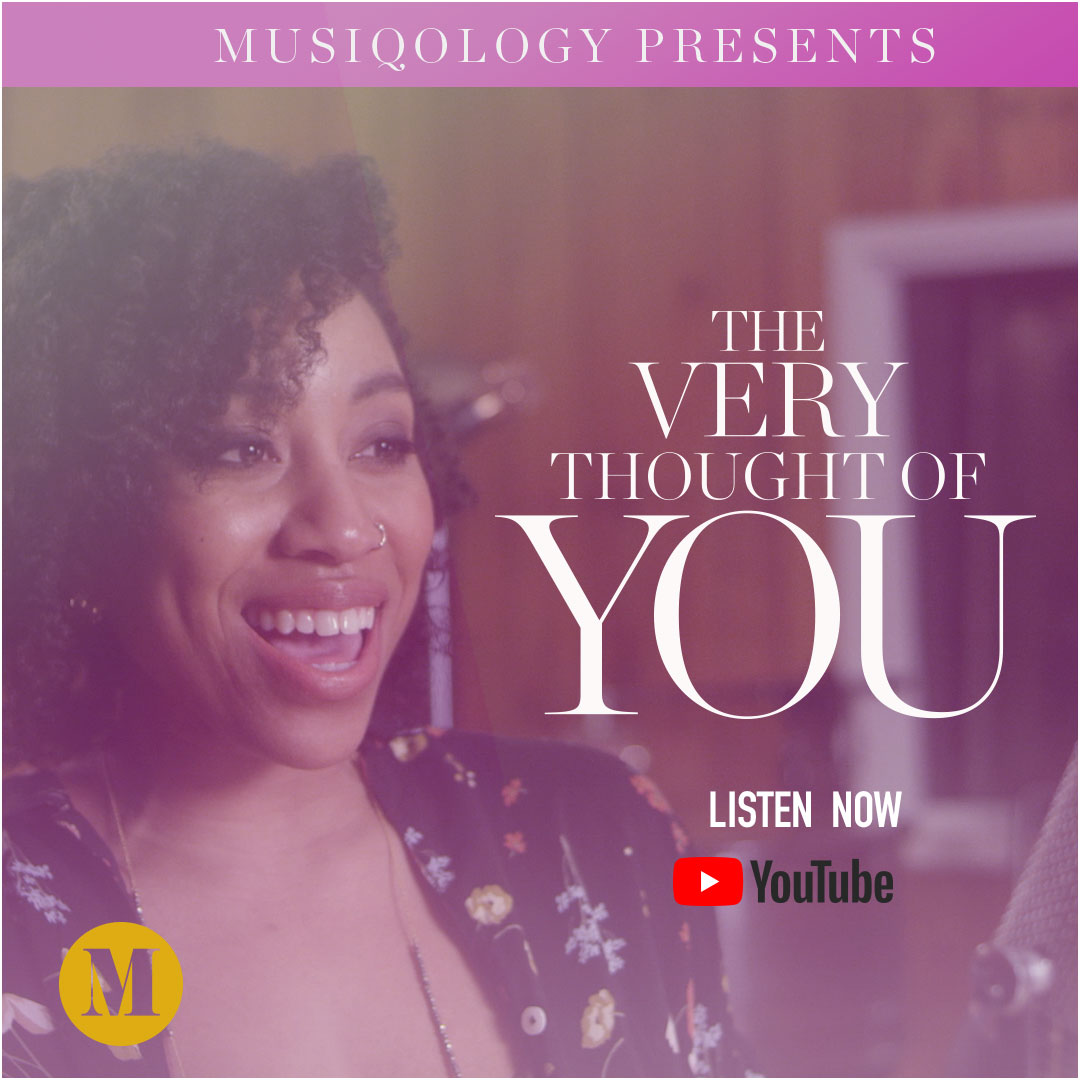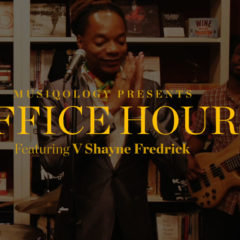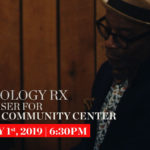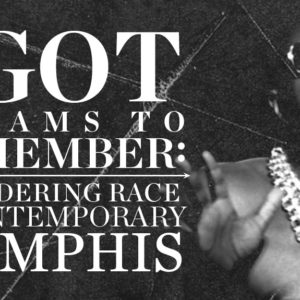One of the longstanding (and valid) laments about Black History Month comes with a bit of irony: “Of COURSE February is Black History Month. It’s the shortest one.”
While many people understand that black history IS American history, that does not mean that the specific contributions of African American and Afro-diasporic peoples should not be highlighted, particularly given the extent to which they have been deemphasized by mainstream narratives, textbooks, and discourses. Twenty-eight days is better than nothing, but there’s a lot to cram into February alone. So why not celebrate the contributions of African Americans 365 days a year?
That was the question that fueled Candace Ramsey to launch The 365 Project, which can be found on Instagram @365daysofblackhistory. The account posts once a day, spotlighting a person, moment, song, or other piece of history that has been impactful to America and the wider world. Subjects have ranged from Amelia Boynton Robinson to Ishmael Reed. Each day, Ramsey adds a brief synopsis of the subject’s significance in the comments, educating her followers quickly and efficiently in the speedy social media universe.
We’ve been following along with Ms. Ramsey, who is Dr. Guy’s daughter, through her first three months of insta-blogging, and are happy to announce a new collaboration between MusiQology and The 365 Project for the month of April. Once each week, we will post a round-up of the project’s latest content, with images and words by Candace Ramsey. The theme for the month will be “Give Me a Beat – Vocalists.”
Before things get going, we wanted to introduce the collaboration with an interview to learn more about the project’s founding, her inspiration, and what she’s learned so far.
How did The 365 Project start?
It started at the end of last year. With everything going on after the election and the racial tension associated with that and the continued police shootings of African Americans, I was feeling really motivated to do something. I struggled for a little while to figure out what that would be, because I wouldn’t necessarily say I’m going to be in the front lines of a protest or anything like that. That’s just not my personality, and I’m sure that a lot of other people felt the same way. So I was just thinking about what I could do to give to the movement and bring positivity to the community. This was something I came up with because education has always been important to me, and I felt like I didn’t necessarily know as much as I wanted to know about African American history. I believed other people might feel the same way, and that I could help address that publicly and make a contribution. So it just kind of morphed from an idea and from that I’ve kind of built on it.
So what has the response been like so far?
It’s been really positive! I’ve been surprised; the first person I told about it was my dad, and of course he was excited about it, but I took that with a grain of salt because he’s my dad. But I started telling a few more people just to see if people would think this was crazy or if people would even care about this. And I got really positive initial feedback and everyone was saying how great of an idea it was and how we need more positive news out there celebrating the African American community. My first month, my goal was 500 followers on Instagram, and I hit that quickly and now have more than a thousand followers. It built momentum pretty quickly.
Why do you think that is?
The way that I’m trying to put the content out there is very digestible. It’s one post a day; it’s a quick little blurb with some facts that you didn’t know and I thought that’s how people might like to consume information these days. Everyone’s on the go and no one wants to sit there and read a long blog post every day [Editor’s note: Ouch!] so I just tried to make it really concise. Hopefully it will be easy for people to remember and draw on it when the opportunity comes up.
So tell us about the experience of making the first post?
Well the first post I did was one introducing the project, but January’s theme was “Voices of the Movement,” so every day I wanted to feature a prominent figure in African American history and a powerful quote that they had. So my first person was Sojourner Truth; I actually went in chronological order from date of birth for the first month.
What about the themes?
March was a little more conventional; ”Read All About It” featured an author every day. But February was called, “And the Verdict Is…” and every day I featured a prominent legal case or piece of legislation in African American history. For that one, I did go chronological order as well, so I basically just started doing my own research. People really responded to that theme given the recent election and the threat of new legislation. So in general it was very top-of-mind for people, and I know I learned a lot just about the history and what African Americans had to go through to get basic rights not too long ago. Many of these were recent cases. I think that really hit home for people…just the fact that this is not that long ago.
Tell us about the choice to partner with MusiQology for April’s music-themed month.
Music has always been a very important part of my life; my dad’s a musician and we always grew up listening to music. So I just felt like as I was thinking through my outline for the year, it would be a perfect fit. It was interesting—I actually had to break up music into two different months because there were so many artists who were important to me and there are so many ways music is an important part of African American history. So we’ll have another month later in the year. I just believe there are so many African Americans that have influence in music that is popular today that people might not know about, so I just wanted to really highlight that.
What’s the most interesting thing that you’ve learned about musicians so far that you didn’t know before beginning preparation for this?
I think one of the things that has been interesting is seeing how acclaimed and awarded a lot of these artists are. Awards are more than just the GRAMMYs or the American Music Awards, and given the news lately about the shows’ lack of diversity, it was interesting to see the artists that were awarded and universally popular in different ways. It’s been interesting as I do my research to see when that shifted and why it seems to be different today.
Check back all month as we feature Candace Ramsey and give @365daysofblackhistory a follow. You’ll learn something new every day.

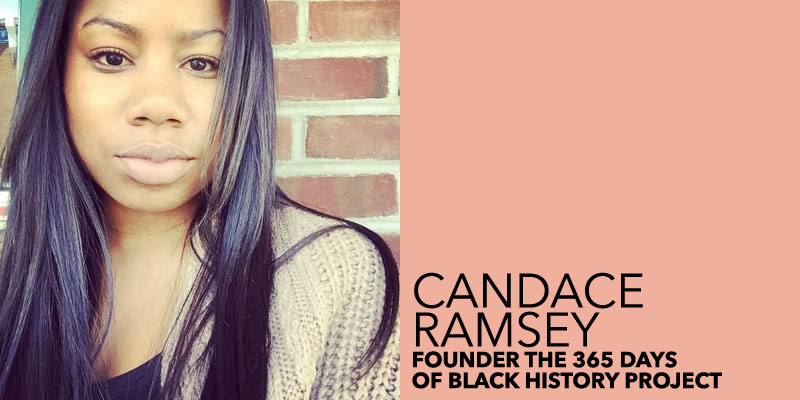
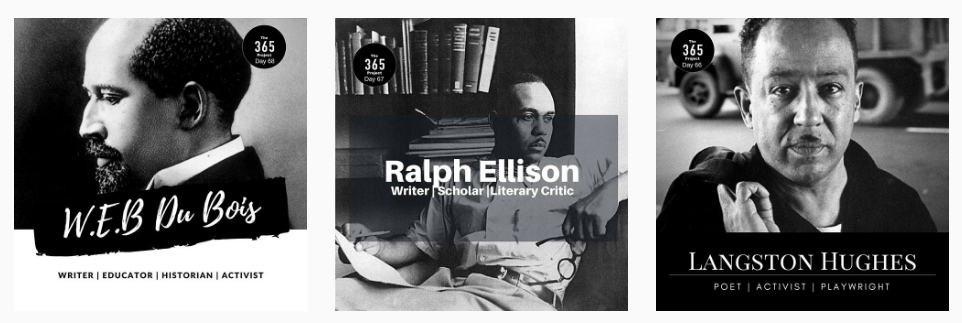
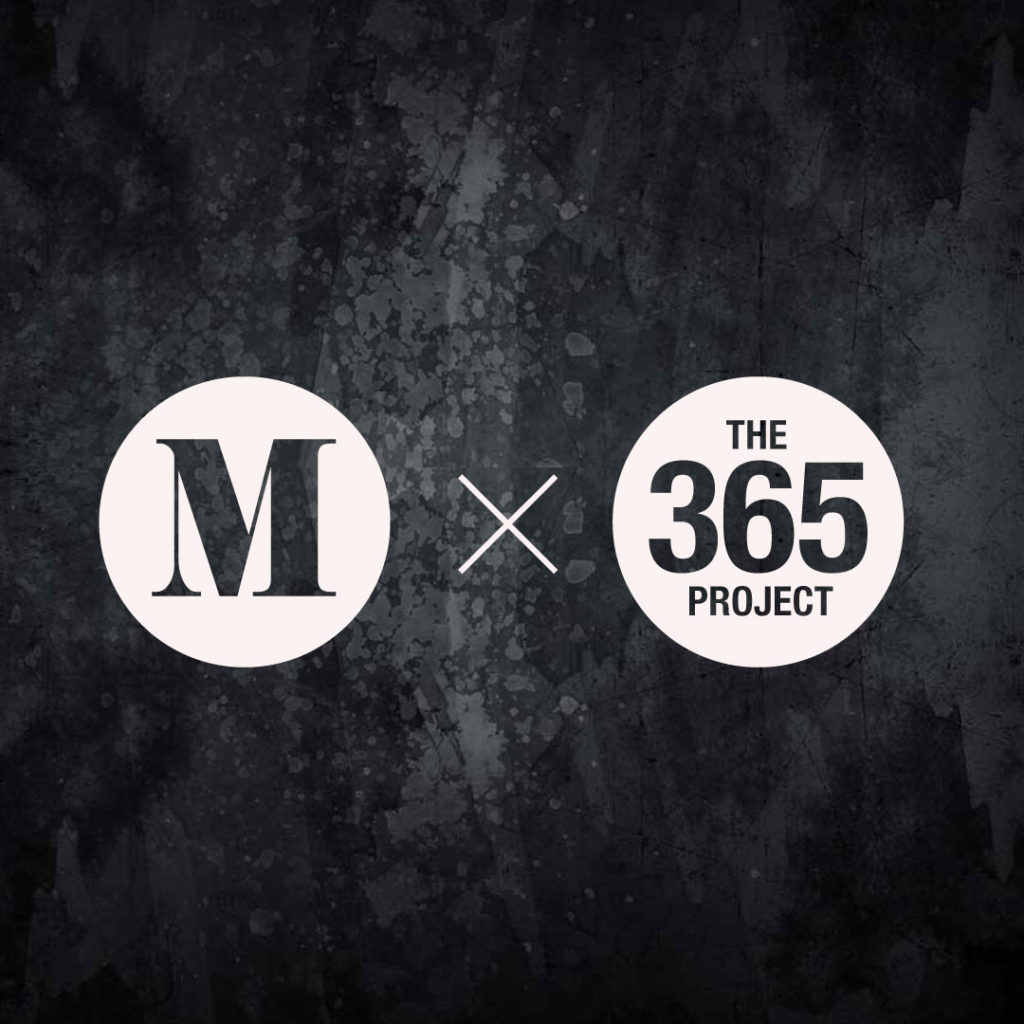
 Share On Facebook
Share On Facebook Tweet It
Tweet It

